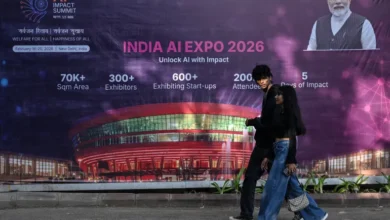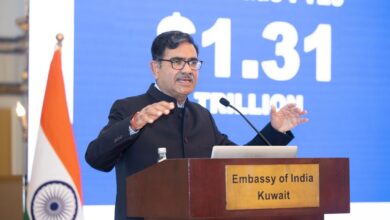India’s growing “outward-looking role” in the Global Space Economy

India’s space agency, ISRO (Indian Space Research Organisation) seems to have embarked on the journey to revolutionize its space field through two major mantras. First, increasing collaborations and partnerships for space research and technology, heavily envisaged by space diplomacy, claiming its role in future space exploration and capacity expansion. Second, its focus on increasing efficiency by achieving cost advantage through the inclusion of private players, in the wake of recent reforms in Indian Space Policy last year. ISRO’s growing international collaboration in the space sector is the dividend of the following three factors: its expertise and its efficiency that ISRO has painstakingly gained over decades, and the political will to engage and boost the global space economy through effective diplomacy and cooperation.
ISRO has begun to exercise its long-due role in expanding the national as well as international space economy. Since its extremely humble beginnings in 1969, the performance of ISRO from rags to riches has always commanded international respect and admiration. Now that ISRO has proved its mettle by executing multiple missions successfully, the ISRO’s outward-looking role at the global level is more of a logical corollary. Currently, ISRO has an ongoing project called NASA ISRO Synthetic Aperture Radar (NISAR) at advanced stages with NASA, which is their flagship partnership project. NISAR will map the globe in 12 days and provide spatially and temporally consistent data for understanding changes in Earth’s ecosystems, biomass, sea level, groundwater, and natural hazards. It will augment the earth’s observation capabilities through cutting-edge radar imaging.
Another one, the TRISHNA (Thermal Infra-Red Imaging Satellite for High-resolution Natural Resource Assessment) mission is a collaborative project of ISRO and France’s National Space Agency (CNES). The project is bound to deliver high spatial and temporal resolution monitoring of Earth’s surface temperature, emissivity, biophysical and radiation variables for surface energy budgeting at regional to global scale. The mission stands to caters to water and food security challenges while focusing on the effects of human-induced climate change and efficient water resource management through evapotranspiration monitoring. ISRO has also been in collaboration with the Japan Aerospace Exploration Agency (JAXA) for the Lunar Polar Exploration Mission (LUPEX). JAXA is developing a rover while ISRO is developing landers for the mission. The project is collaborative in multiple ways as the rover would be used by NASA and European Space Agency (ESA) as well.
ISRO already has a cooperation mechanism in place for activities like earth observation, satellite navigation, space situational awareness and the establishment of a transportable terminal at Cocos-Keeling Island (CKI) to support India’s GAGANYAAN programme with its Australian counterpart. Australia-India has had more than a decade-old partnership due to the MoU of ‘2012 India – Australia Inter-Governmental MoU for cooperation in Civil Space Science, Technology and Education’.
India also strengthened its relationship with Israel on the science diplomacy front by exploring potential opportunities for working together in the future including the launch of Israeli satellites in the Indian launcher, along with their ongoing activities including cooperation in electric propulsion system and GEO-LEO optical link.
ISRO has been establishing bilateral and multilateral relations with space agencies and space-related bodies to build and bolster existing ties between countries and take up new scientific and technological challenges. It also aims to improve space policies and ensure international frameworks for the exploitation and utilisation of outer space for peaceful purposes.
ISRO’s partnership is not only limited to the developed countries, rather its collaboration expands to ensure knowledge transfer to the developing countries, establishing it as a major potential mentor for the Global South. In August 2023, the Kenyan Defense Minister with his cohort visited ISRO to explore the opportunities to establish a partnership with India on space programs and learn from its successes. India has extended a ‘customised training program’ to the Kenya Space Agency to enhance the African nation’s space research and technology. India is also in conversations with Mexico for building and launching a remote-sensing satellite for the latter. India has also joined hands with UAE for cooperation in space economy and has already assisted the UAE in its first nano-satellite. Cooperation is also being sought with Egypt, Saudi Arabia, and Kuwait, among others.
At the same time, the Indian leadership has been applauded for taking the bold and progressive step of opening the space economy to the private sector. The step ensures that the boost to the space sector comes from the private sector as well, exploiting the private sector’s capabilities to their full potential. Thus, with the opening up of the sector to private players, which was hitherto under the monopoly of the government, the sector stands to ensure cost-effective production solutions to the Indian space economy, along with the macroeconomic agenda of employment generation. Through its well-felicitated “forward-looking” Indian Space Policy 2023, the government has allowed the private sector to conduct end-to-end space-based activities in satellite communication, their launches, remote sensing, and satellite navigation . Involvement of private entities stands to provide India an edge by expanding its boundaries of capacity and capabilities, increasing production efficiency by reducing costs, and, in turn, producing large numbers of space-exploration instruments available to the global launch service community .
The role of private sector gets important for ISRO’s collaborations as well. ISRO chairman has already talked about the scope for India’s private firms to operate and carry out business in foreign nations with whom space sector collaboration has been unexplored, such that Indian private firms can build satellites and supply them to Mexico.
With more than 230 agreements with over 55 countries and five multinational bodies, India’s space agency has definitely taken up an outward-looking role in expanding the global space economy through satellite and capacity building. India has set a vision to expand its space economy to $40 billion by 2040. On the other hand, international observers believe that the India has potential to expand it to $100 billion over the next one and a half decades. Thus, nationally as well as internationally, ISRO and other entities from India focusing on space-related endeavors are on the path of promising contributions not just to international space exploration, but also in defining the polices regarding utilization of space.











